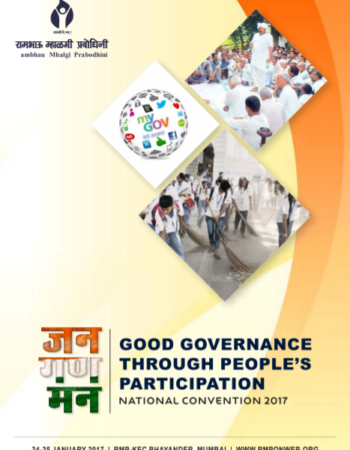Background
Democracy in India has evolved over centuries. India has earned universal recognition as the cradle of Spiritual Democracy. Political Democracy with the idea of autonomous society has remained inherent to the concept of democracy in India. In the recent past, from the ‘Dark days of emergency’ to ‘Citizen’s rating government’s performance’, India has come a long way as a democratic nation state.
Good governance is a necessary condition for a stable and prosperous democracy which is not possible without public participation. The concept of peoples’ participation has been defined and implemented differently by different users of the term across the globe. However, the parameters of participation have been debated along with various criteria such as: involvement of the local community in decision making, implementation strategies, sharing of direct and indirect benefits and monitoring and evaluation of the projects.
Public information education, Consultation and Citizen Engagement are widely considered as the tools of People’s Participation. Experiences in most of the government sponsored projects have shown that the involvement of the community, in general, is sub-optimal. While this being so, the involvement of NGOs as intermediary agencies is expected to accelerate the pace of project implementation and ensure quality and sustainability. The process of people’s participation, therefore, requires a triangular partnership among the local community, NGOs and Government Agencies.


